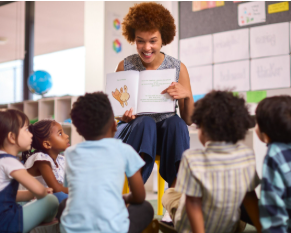The words we use with children shape how they see themselves and the world around them. Positive language is a powerful tool that helps build confidence, encourages cooperation, and fosters emotional well-being. When children hear affirming, respectful words, they begin to believe in their abilities and develop a healthy sense of self-worth.
Why Positive Language Matters
Children are constantly learning—not just facts and skills, but how to understand their emotions and relate to others. The way adults speak to children plays a big role in this learning. Kind, encouraging words help children feel safe, valued, and understood. In contrast, harsh or negative language can lead to feelings of doubt, fear, or shame.
By using positive language, adults can guide children without damaging their self-esteem. For example, instead of saying, “Don’t run!” you can say, “Let’s walk safely.” This simple change focuses on the desired behavior rather than just correcting the unwanted one.
Encouraging Growth and Confidence
Positive language also nurtures a growth mindset. When we say things like, “You worked so hard on that!” or “I love how you kept trying,” we emphasize effort and resilience. These types of phrases teach children that mistakes are part of learning and that improvement comes with practice.
When children are regularly exposed to uplifting language, they are more likely to:
-
Try new things without fear of failure
-
Solve problems independently
-
Communicate their needs clearly
-
Show empathy and kindness to others
Everyday Ways to Use Positive Language
Empowering language doesn’t require big speeches—it’s about small, thoughtful choices in everyday moments. Here are a few ideas:
-
Instead of “You’re being bad,” say “Let’s make a better choice.”
-
Instead of “Stop whining,” try “Use your calm voice so I can help.”
-
Instead of “You’re so messy,” say “Let’s tidy up together.”
Offering choices, validating feelings, and praising efforts are all simple but effective ways to support children with words.
Building a Supportive Environment
Positive language isn’t just about avoiding negativity—it’s about creating a culture of kindness, respect, and encouragement. Whether in a classroom or at home, children thrive when they feel emotionally secure. When adults model respectful language, children learn to speak to others—and themselves—with that same respect.
Empowering children with our words helps them grow into confident, compassionate individuals. Every phrase of encouragement, every gentle redirection, and every kind word plants the seeds for a strong, positive self-image that can last a lifetime.


